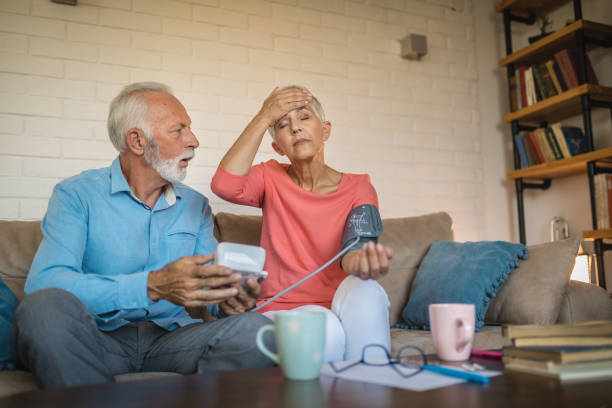The #1 Rated Blood Sugar Formula
The Relationship Between Headache and High Blood Pressure

Does High Blood Pressure Cause Headaches?
Most of the time, high blood pressure does not cause symptoms.
The only case where hypertension appears to cause a headache is with a hypertensive crisis.
This occurs when blood pressure soars to 180/120 mm Hg or higher.
Hypertensive crisis is a medical emergency, as it can lead to stroke, heart attack, kidney damage, memory loss, and other severe complications.
If your blood pressure is 180/120 mm Hg or higher, wait five minutes and take your blood pressure reading again.
If your blood pressure is still elevated but you don’t have any other symptoms, contact your healthcare provider for guidance.
However, if your blood pressure is 180/120 mm Hg or higher and you experience any of the below symptoms, seek emergency care immediately:
- Severe headache
- Blurred vision
- Confusion
- Chest pain
- Shortness of breath
- Nausea and vomiting
- Severe anxiety
- Seizures
- Unresponsiveness
- OTC pain relievers: Acetaminophen (Tylenol), aspirin, ibuprofen (Advil, Motrin), or naproxen (Aleve) may be used for headaches and mild migraines. But these should not be taken daily for long periods of time, as some can lead to problems like ulcers or other gastrointestinal complications.
- Beta-blocker drugs: For recurring migraines, doctors may prescribe blood pressure medication such as propranolol (Inderal, InnoPran). These can reduce the feelings of pressure in the head.
- Reduce stress
- Therapy: Some evidence suggests that cognitive behavioral therapy (CBT) may help alleviate symptoms of headache or migraine. CBT teaches how to identify and challenge inaccurate thoughts, which may help manage stress.
- Relaxation techniques: Meditation appears promising for tension headaches and migraines, while aromatherapy with lavender essential oil may help reduce the severity of migraines. Both of these practices also help alleviate stress.
- Yoga: For many individuals, this mind-body practice leads to lower stress levels. And some evidence suggests that yoga also decreases tension headache frequency, duration, and intensity. Less caffeine
- Avoid or reduce alcohol intake
- Quit smoking
- Get regular physical activity
- As a bonus, these things may also help manage high blood pressure.






